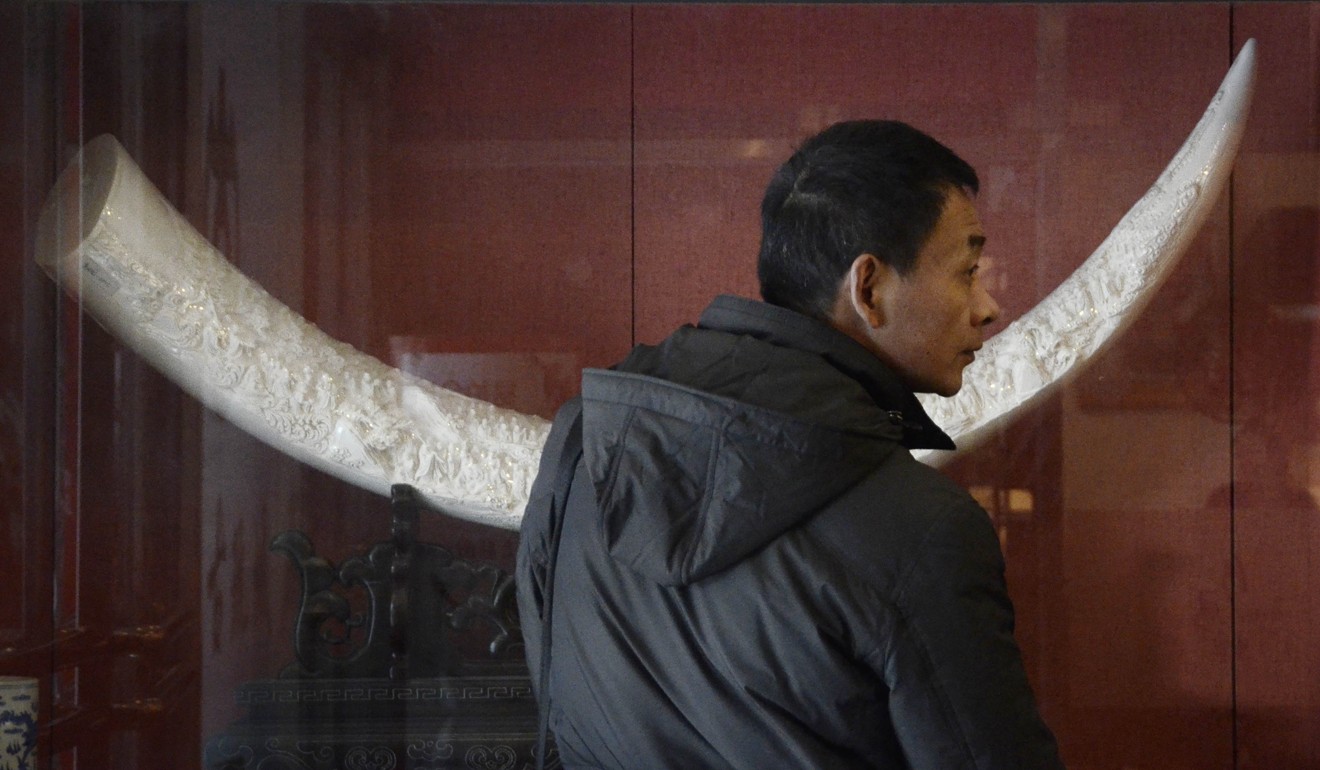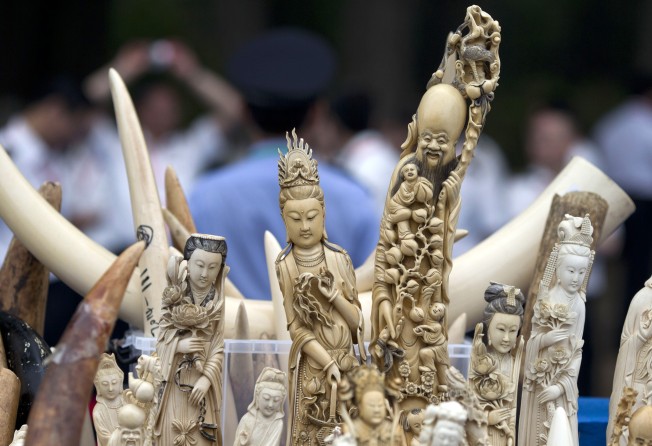
China’s ivory ban gains public support as country looks to stamp out domestic trade by the end of the year
Conservation groups find strong public backing for ban but warns that raising awareness is vital for elephants’ future

China’s ban on the ivory trade has won widespread public support, according to a survey commissioned by conservation groups.
The joint report for Traffic, the wildlife trade monitoring network, and WWF suggested that more than half of ivory buyers had stopped after China’s State Council announced a ban on December 30, 2016.
Overall it found that 86 per cent of the public supported the ban.
Under the ban, the commercial processing and sale of ivory and ivory products must stop at the end of this year.
“China has shown great leadership on this urgent issue within a region plagued by illegal wildlife trade activity, which is exacerbated by legal markets,” Margaret Kinnaird, WWF’s wildlife practice leader, said.
“It is a huge step forward and a clear commitment to securing a future for Africa’s elephants.”
The research, carried out by the consultancy GlobeScan, involved eight in-depth interviews, eight focus groups and an online survey of 2,027 Chinese consumers across 15 major cities that have active ivory markets.

While the ban was seen as a positive thing, the researchers found that public awareness was low – only 19 per cent of those surveyed call recall spontaneously any regulations concerning the ivory trade although 46 per cent remembered it when prompted.
The report also showed that China’s millennials (those aged 15-29), were the most likely to buy ivory, with 21 per cent intending to continue buying it. The age group was also the most likely to purchase the product online.
While ivory sales had decreased in the most active markets, the report found more people were buying it in the least active markets.
Since 86 per cent of those surveyed supported the ban after they learned about it, the report highlighted the importance of information in changing consumer behaviour.
“We remain confident that as the doors to the largest legal ivory trade close, we start 2018 a step closer to securing a world where demand for ivory is significantly reduced,” Kinnaird said.
As one of the largest markets for the ivory trade, China’s ban has been welcomed for having a global impact.
“Given the leadership role that China plays across the Asia-Pacific, we expect the Chinese ban to set an example and catalyse the closure of ivory markets across Asia,” Zhou Fei, head of Traffic’s China Programme and WWF China’s Wildlife Trade Programme, said.
Zhou also said China would support similar bans in neighbouring countries.
Under the ban, 67 of the country’s 172 accredited ivory stores had to shut before March 31 this year with the remaining ones forced to shut by the end of December.